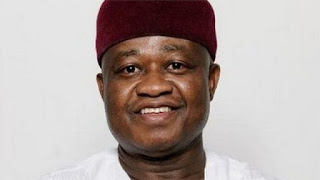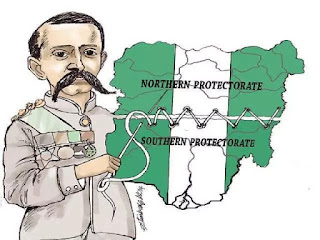IS BUHARI’S ANTI-CORRUPTION FOR REAL?
For over five decades, President Buhari has built around himself an aura that is larger than life, on his stance on anti-corruption and being incorruptible. In fact that is why he managed to command fellowship of his Buharism with religious fervor, especially among the masses. I dare say, in today’s rank and file of leaders across the world, no one can stand shoulder to shoulder with Buhari when it comes to grassroots fellowship. His campaign trail across the states in 2015 and 2019 is a clear testimony of the unwavering solidarity he enjoyed with the masses.
A score card always helps in adjudging performance, whether on an individual or state, therefore in order to answer the question on the title of this article we need to consult the last four years under Buhari’s rule. No doubt there were some strides in some areas, most visible is the Treasury Single Account (TSA) implementation in the early days of the administration. Some high profile cases were opened others re-opened but unfortunately none has reached conviction. The judiciary has played a key role in the sluggish manner trials were conducted. The legislature on its part had scuttled some vital legislation that would help in curbing official corruption.
That said, I was amazed at the urgency when my friend, Auwal Musa Rafsanjani (Executive Director of Transparency’s international Partners CISLAC) sent me a message Sunday evening inviting me to a press conference the following morning, demanding immediate response. I arrived the venue in Utako and found an array of journalists covering the Electronic and Print media assembled, including the NTA. Mr. Rafsanjani in his usual outburst (a hallmark of his attitude since our days as student activists) began with a profound statement “Nigeria is in trouble….we have less than a week for President Buhari to sign the Companies and Allied Matters Act 2018 (CAMA), or we stand to be ridiculed by the international community”, looking grave and concerned, Rafsanjani continued “This is a man voted into office twice for his stance on anti-corruption but refusing to assent or withhold assent to a crucial bill that will send clear signal to our country’s commitment to the fight against corruption”
The legislative framework of the CAMA Bill will provide legal foundation for the implementation of Beneficial Ownership Disclosure. What that means in layman’s term is anyone with over 5% ownership in a company must be known by the public and that would automatically combat shielding of asset (especially by serving government officials). Were Buhari to sign the bill, it will lead to the establishment of the electronic web-based open Beneficial Ownership register in Nigeria, which means with a click the Nigerian public could know who owns what in the business circle within Nigerian jurisdiction. What pained Rafsanjani most, as it is clearly written on his face, is when he narrates the decade long fight, advocacy and what not that will be lost if the bill does not see the light of day. According to him they even went to State Department and European Union with regard to the implementation of the bill. Failure of assenting to the bill within the week will cause irreparable damage to Mr. President image as an icon of anti-corruption in Africa from the International community and to the reputation of the nation in general beside economic potentials and benefit it could bring. Failing to sign the bill by Mr. President will also put the country at risk of being suspended from the Global Extractive Industry Transparency Initiative (EITI) come December 2019.
As this administration seemed poised in empowering the SME’s sector (The Anchor borrower program, NIRSAL, Creative industry funding etc) signing this bill into law by Mr. President will be the greatest boost to SME’s as the bill includes the permission of one person to operate a company as against the earlier requirement of having shareholders and Directors. It will certainly ease several bottlenecks that suffocate SME’s operators, who are the engine of growth in any economy.
Another bill related to the fight against corruption that was also passed by the National Assembly and await assent of the President is the Prevention of Corruption (Amendment) Bill. This bill is key in fighting corruption and prosecution of offenders both in and outside government and for months is kept in the cooler by the President.
The Federal Audit Service Bill that will empower the Auditor General of the Federation to penalize Government agencies and officials who refused to submit their financial statement for audit was also in the cooler after passage by the National Assembly. This bill surpassed all other bills to serve as deterrent to public officials from corruption because it doesn’t have to wait for the courts to sanction offenders but gave the Auditor General the powers to withhold emoluments of deterring officials. Imagine the rate of compliance that will follow suit if the Auditor General would be conferred with such powers.
For God sake why would a President that is a champion of anti-corruption, preaching accountability, and at every opportunity re-iterating his commitment to the betterment of the economic life of the masses refused to assent to POCA, CAMA and the Audit Bills? By law under the 1999 Nigerian constitution, it clearly stipulates a 30 days window period by which Mr. President has the prerogative of either assenting to a bill or withholding that assent. All of the above bills are in his office now for months since last year.
It is on record that late Umar Musa Yar’Adua, a few weeks in assumption of office passed the Procurement Act, which in no small way, helped in curtailing corruption as it gave EFCC leverage in investigating contracts and arraigning fraudulent contractors and their co-conspirators in government. That indeed was a legacy by Yar’Adua. Suppose President Buhari had lost the 2019 election, what legacy would he have left behind in the area of legislation, which is at the forefront in successful fight against corruption? We always accused the National Assembly in the last four years for undermining the presidency, but it is now clear that the most important legislations on anti-corruption were passed by them and the presidency under Buhari is blocking its implementation. The writing on the wall is now clear that some powerful forces may have been at work in preventing the presidential assent of the bills. We cannot excuse Mr. President on this issue considering if he and his team have any misgiving about any part of the bill, we expected him to withhold assent and send it back within the stipulated time frame of 30 days provided by the constitution.
As Mr. Rafsanjani re-iterated in his briefing, we are calling on Mr. President to quickly assent to all those bills if he is really committed to his fight against corruption, failure to do that will convince Nigerians that his campaign is just a hoax and he would have failed the Nigerian masses that voted him twice to fight corruption. He should also know that Nigerians, the International community and above all God, are watching keenly, whether a simple stroke of the presidential pen will be forthcoming or not.




Comments
Post a Comment